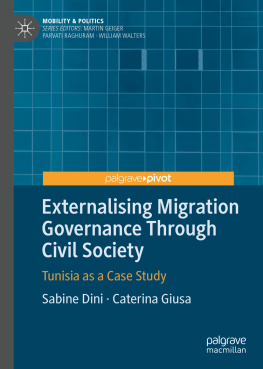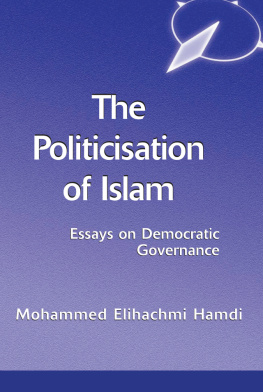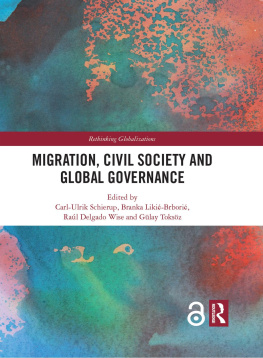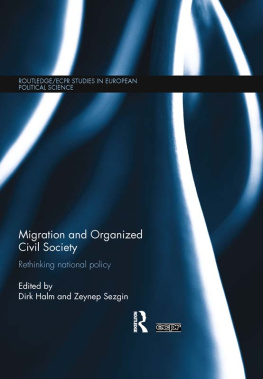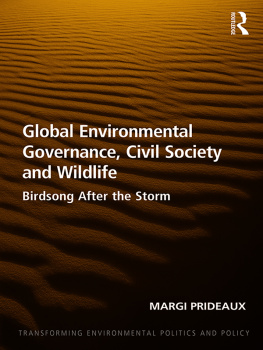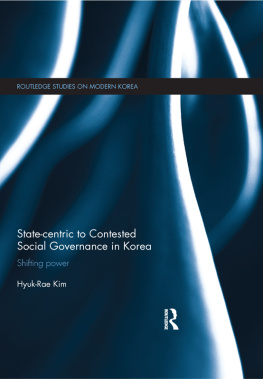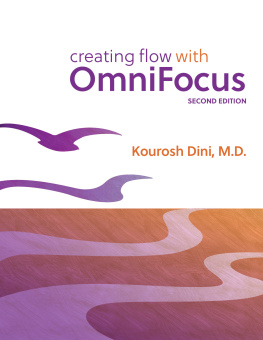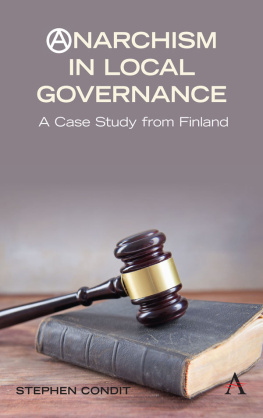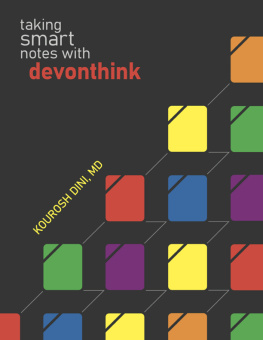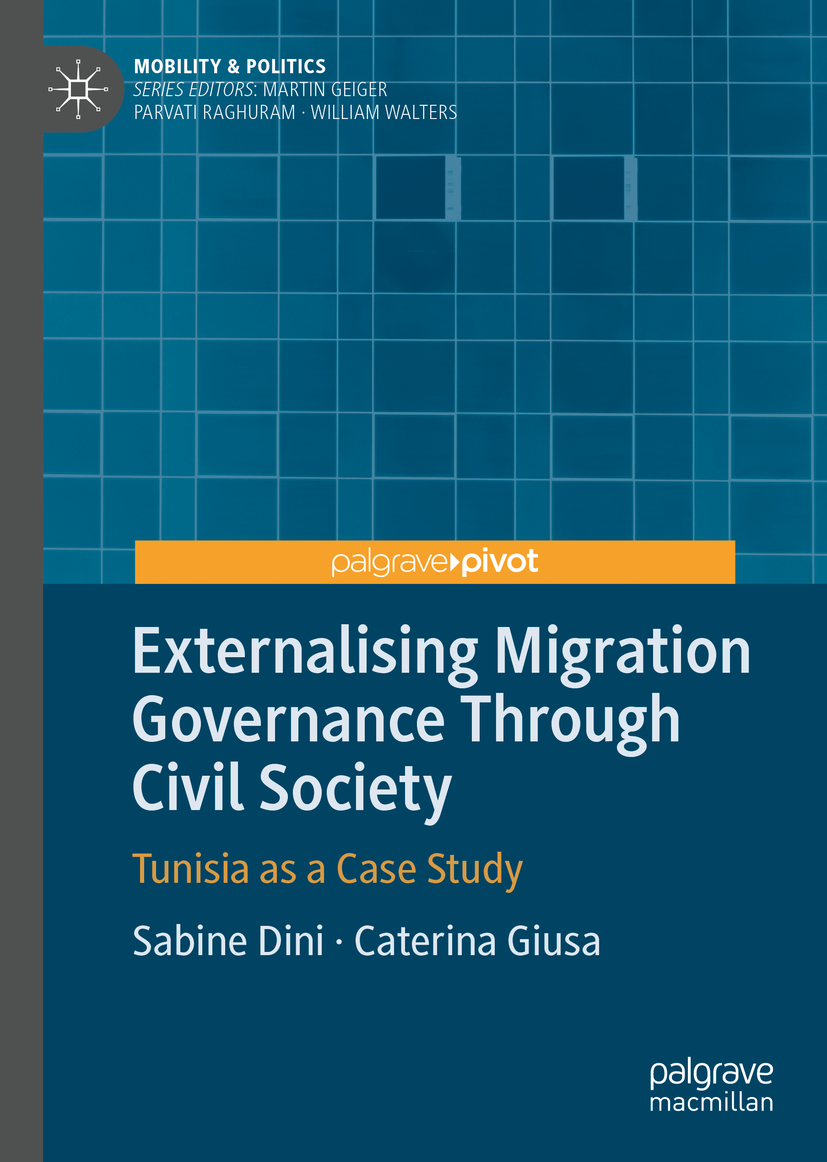Mobility & Politics
Series Editors
Martin Geiger
Carleton University, Ottawa, Canada
Parvati Raghuram
Open University, Milton Keynes, UK
William Walters
Carleton University, Ottawa, Canada
Mobility & Politics
Series Editors:Martin Geiger, Carleton University, Ottawa, Canada; Parvati Raghuram, Open University, Milton Keynes, UK; William Walters, Carleton University, Ottawa, Canada Martin Geiger, Carleton University, Ottawa, Canada; Parvati Raghuram, Open University, Milton Keynes, UK; William Walters, Carleton University, Ottawa, Canada
Global Advisory BoardMichael Collyer, University of Sussex; Susan B. Coutin, University of California; Ral Delgado Wise, Universidad Autnoma de Zacatecas; Nicholas De Genova, Kings College London; Eleonore Kofman, Middlesex University; Rey Koslowski, University at Albany; Loren B. Landau, University of the Witwatersrand; Sandro Mezzadra, Universit di Bologna; Alison Mountz, Wilfrid Laurier University; Brett Neilson, University of Western Sydney; Antoine Pcoud, Universit Paris 13; Ranabir Samaddar, Mahanirban Research Group Calcutta; Nandita Sharma, University of Hawaii at Manoa; Tesfaye Tafesse, Addis Ababa University; Thanh-Dam Truong, Erasmus University Rotterdam. : Michael Collyer, University of Sussex; Susan B. Coutin, University of California; Ral Delgado Wise, Universidad Autnoma de Zacatecas; Nicholas De Genova, Kings College London; Eleonore Kofman, Middlesex University; Rey Koslowski, University at Albany; Loren B. Landau, University of the Witwatersrand; Sandro Mezzadra, Universit di Bologna; Alison Mountz, Wilfrid Laurier University; Brett Neilson, University of Western Sydney; Antoine Pcoud, Universit Paris 13; Ranabir Samaddar, Mahanirban Research Group Calcutta; Nandita Sharma, University of Hawaii at Manoa; Tesfaye Tafesse, Addis Ababa University; Thanh-Dam Truong, Erasmus University Rotterdam.
Human mobility, whatever its scale, is often controversial. Hence it carries with it the potential for politics. A core feature of mobility politics is the tension between the desire to maximise the social and economic benefits of migration and pressures to restrict movement. Transnational communities, global instability, advances in transportation and communication, and concepts of smart borders and migration management are just a few of the phenomena transforming the landscape of migration today. The tension between openness and restriction raises important questions about how different types of policy and politics come to life and influence mobility.
Mobility & Politicsinvites original, theoretically and empirically informed studies for academic and policy-oriented debates. Authors examine issues such as refugees and displacement, migration and citizenship, security and cross-border movements, (post-)colonialism and mobility, and transnational movements and cosmopolitics. invites original, theoretically and empirically informed studies for academic and policy-oriented debates. Authors examine issues such as refugees and displacement, migration and citizenship, security and cross-border movements, (post-)colonialism and mobility, and transnational movements and cosmopolitics.
More information about this series at http://www.palgrave.com/gp/series/14800
Sabine Dini and Caterina Giusa
Externalising Migration Governance Through Civil Society
Tunisia as a Case Study
Sabine Dini
University of Sorbonne Paris Nord, Villetaneuse, France
Caterina Giusa
University of Sorbonne Paris Nord, Villetaneuse, France
Mobility & Politics
ISBN 978-3-030-39577-3 e-ISBN 978-3-030-39578-0
https://doi.org/10.1007/978-3-030-39578-0
The Editor(s) (if applicable) and The Author(s) 2020
This work is subject to copyright. All rights are solely and exclusively licensed by the Publisher, whether the whole or part of the material is concerned, specifically the rights of translation, reprinting, reuse of illustrations, recitation, broadcasting, reproduction on microfilms or in any other physical way, and transmission or information storage and retrieval, electronic adaptation, computer software, or by similar or dissimilar methodology now known or hereafter developed.
The use of general descriptive names, registered names, trademarks, service marks, etc. in this publication does not imply, even in the absence of a specific statement, that such names are exempt from the relevant protective laws and regulations and therefore free for general use.
The publisher, the authors and the editors are safe to assume that the advice and information in this book are believed to be true and accurate at the date of publication. Neither the publisher nor the authors or the editors give a warranty, express or implied, with respect to the material contained herein or for any errors or omissions that may have been made. The publisher remains neutral with regard to jurisdictional claims in published maps and institutional affiliations.
Cover image: Modern building window saulgranda/Getty
This Palgrave Macmillan imprint is published by the registered company Springer Nature Switzerland AG.
The registered company address is: Gewerbestrasse 11, 6330 Cham, Switzerland
Acknowledgements
We would like to thank our PhD supervisor, Antoine Pcoud.
We want to express our gratitude for their insightful comments, editing, and proofreading to: Hassen Boubakri, Giulia Breda, Clara Capelli, Paolo Cuttitta, Shoshana Fine, Anna Fortunier, Ilaria Giglioli, Barbara Lthi, Hafa Mzaloulat, Diane Robert, Giulia Scalettaris, Camille Schmoll, Farida Seba, Tanguy Sn, Maurice Stierl, Martina Tazzioli, Stacy Topouzova, Maggie Twenhoeven, Nicholas Van Hear, Carlo Vercellone, Maa Youssef, Valentina Zagaria, Mathilde Zederman
Special thanks go out to Shiar Youssef for editing and proofreading the final manuscript.
We also thank Achref Dabbebi for the figures in this book.
Finally, we are very grateful to the interviewees, colleagues, friends, and family who took part, in different and equally important ways, in this research project. They are too many to be listed here, but without them, this book would have not existed.
Acronyms and Abbreviations
AESAT
Association of African Students and Interns in Tunisia
AVRR
Assisted Voluntary Return and Reinsertion
CSO
Civil Society Organisations
CTRM
Tunisian Council for Refugees and Migrants
DCFTA
Deep and Comprehensive Free-Trade Agreement
EC
European Commission
ENI
European Neighbourhood Instrument
ENP
European Neighbourhood Policy
ENPI
European Neighbourhood and Partnership Instrument
EU
European Union
EURA
European Readmission Agreement
FPMI
Milan Province Fund for International Cooperation
Frontex
European Agency for the Management of Operational Cooperation at the External Borders of the Member States of the European Union
FTDA
France Terre dAsile
IAMM
International Agenda for Migration Management
ICMPD
International Centre for Migration Policy Development
IFT
French Institute in Tunisia
IGOs
Intergovernmental Organisations
IOM
International Organization for Migration

